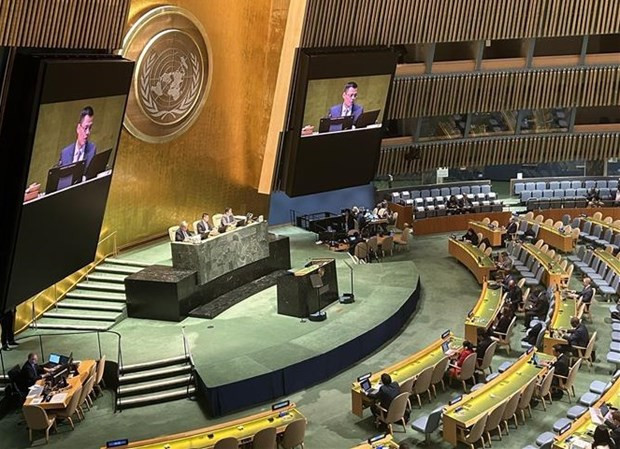The resolution was proposed by Vanuatu, an island nation that has suffered many devastating cyclones in the Pacific and is supported by a core group of 18 countries from different regions, including Vietnam. According to the Resolution, the UN member states requested the ICJ to give opinions on the obligations of states under international law in protecting the environment, as well as on the legal responsibilities of countries that have caused negative impacts of climate change for many other countries.
As a rule, only the General Assembly and the United Nations Security Council have the right to request the ICJ for advice on legal issues. United Nations Secretary-General Antonio Guterres stressed that although the ICJ’s advice is not binding, the ICJ will still support UN member states to take stronger and more decisive actions to meet the requirements of the fight against climate change. ICJ’s advice is generally respected by the international community, helping to push countries to behave in a way that is more consistent with their obligations under international law.
The international community has important mechanisms to respond to climate change such as the United Nations Framework Convention on Climate Change (UNFCCC), the Paris Agreement on climate change, and others. However, many provisions in these agreements are not very specific, resulting in the measures in response to climate change of countries not being implemented as expected. The ICJ’s advice is expected to clarify the responsibilities and obligations of countries in climate action.
The ICJ is the highest international legal body of the United Nations. With this resolution, the ICJ will, for the first time, give its legal opinion on climate change, one of the most urgent and widely discussed issues at many international and regional forums. The resolution, co-sponsored by 132 UN member states and ratified by 193 countries, shows the strong support of the international community for legal responsibility in climate change response actions.
According to Vanuatu Prime Minister Alatoi Ishmael Kalsakau, the final text of the Resolution is the result of a lengthy consultation and deliberation process, showing the importance of the initiative, as well as the collective desire to resolve the climate crisis. The Prime Minister of Vanuatu highlighted the important role of young law students in the Pacific who inspired this initiative.
Welcoming the landmark resolution, UN High Commissioner for Human Rights Volker Türk said the ICJ’s advice could be an important catalyst for the urgent, ambitious and equitable climate action, contributing to preventing global warming, while limiting and redressing harms to human rights caused by climate. The Office of the United Nations High Commissioner for Human Rights has extensively documented the human rights impacts of climate change and is ready to share information on the human rights obligations that countries and other actors need to ensure in the climate problem.
Citing a new scientific report released by the Intergovernmental Panel on Climate Change (IPCC), United Nations Secretary-General Guterres reaffirmed that humans are responsible for virtually all of the warming of the Earth for the past 200 years. The head of the largest multilateral organisation on the planet emphasised that now is the time for climate action and climate justice, and that the climate crisis can only be solved through close cooperation between peoples, cultures, nations and generations.
















